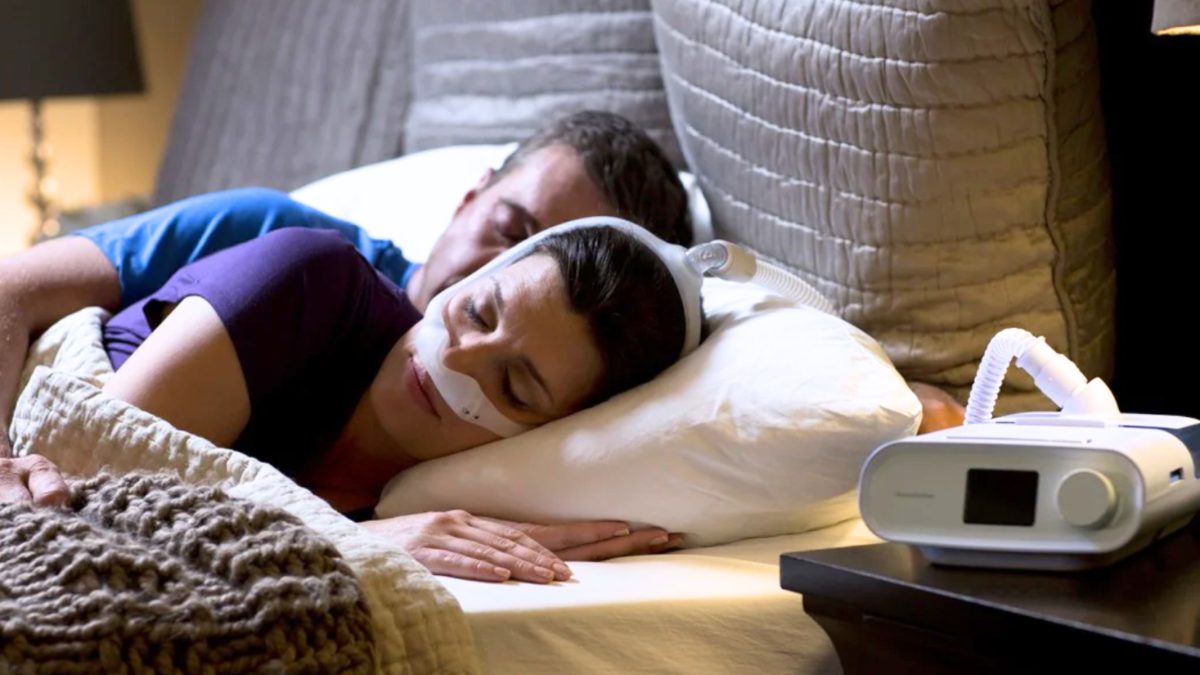Fact Checked
Intus Healthcare’s writers, customer service team, and sleep experts review and ensure this information is accurate.
Last updated on April 5th, 2024 at 11:03 am
Many types of masks and machines are designed and available to accommodate different requirements. Although there are alternative treatment options for OSA, CPAP is considered the gold standard method and is used by millions worldwide. This article will explain the positive long-term effects of CPAP on the body and why you should consider it if you have symptoms of Sleep Apnoea.
Table of Contents
Will a CPAP machine change my life?
Continuous Positive Airway Pressure (CPAP) therapy is the most widely used treatment for Obstructive Sleep Apnoea (OSA). OSA occurs when the muscles in the throat and tongue relax too much, causing the airway to become partially or entirely blocked. This leads to interrupted breathing, snoring, and reduced oxygen intake, disrupting sleep.
CPAP consists of a machine, mask and tube that delivers a flow of air pressure to keep the airway open during sleep. The mask connects to the machine and tube, supplying air that acts as a gentle support, preventing the airway from collapsing or becoming obstructed. As a result, this life-changing treatment prevents interruptions in breathing throughout the night.
What happens when using a CPAP machine?
Those with untreated Sleep Apnoea experience continuous breathing interruptions. Using CPAP reduces the number of these interruptions thus lowering your AHI (Apnoea Hypopnoea Index) so you wake up feeling refreshed from a restful night’s sleep. Reducing your AHI also controls the symptoms of OSA, decreasing the risk of developing other health conditions and helping you manage the disorder. Body changes after CPAP include:
Improved sleep
By maintaining a clear airway, CPAP therapy ensures optimum oxygen levels and reduces interruptions in breathing. This, in turn, allows for more restful and uninterrupted sleep cycles. Many people experience better sleep in as little as a week after starting treatment.
Better cardiovascular health
Untreated Sleep Apnoea is linked to decreased cardiovascular health, increasing the risk of heart disease, atrial fibrillation and heart attacks(1). CPAP prevents OSA episodes, ensuring an uninterrupted oxygen supply and stable blood pressure throughout the night. This reduces the strain on the heart and lowers the risk of heart-related issues. Consistent CPAP use can lead to improved cardiovascular health, reduced blood pressure, and a lower likelihood of developing severe heart conditions.
Reduced risk of diabetes
Using a CPAP machine reduces the risk of developing diabetes by improving sleep quality and lowering the chances of insulin resistance. The equipment stabilises the effects of OSA on blood sugar levels, insulin resistance, and glucose metabolism. These factors make it less likely for you to develop diabetes.
Better metabolic health
The frequent obstructions that put stress on your body can disrupt your metabolism, which is the process that turns food into energy. Using a CPAP machine allows you to gain deeper, more restful sleep and may help your body to regulate its metabolism more effectively. With better sleep, your body can efficiently process food for energy, manage weight, and maintain a healthy metabolic rate.

Lower blood pressure
Before using a CPAP machine, you are at risk of higher blood pressure. The frequent awakenings and oxygen drops strain your heart and blood vessels, leading to high blood pressure over time. Essentially, untreated OSA puts stress on your body, making your heart work harder and your blood pressure rise, which can increase the risk of other health issues. CPAP therapy can help control your blood pressure levels. If you suffer from high blood pressure and use a blood pressure monitor, you should continue to use this.
Increased alertness & energy
Sleep Apnoea is commonly characterised by low energy, lethargy, and poor concentration due to constant fatigue. After using CPAP, your energy levels should increase, helping you concentrate more on work, focus on daily tasks, and feel refreshed.
Improved mental well-being
Before starting therapy, many people experience symptoms of depression, anxiety, and poor mental health. Experts are not aware of why OSA can cause these negative symptoms to your mood, but it could be due to low oxygen levels causing changes to the brain that can affect mood.
Although, it is common for decreased sleep to have a detrimental effect on your mood.
After settling into a routine of using your device, you should see a significant improvement in your mood.
Reduced or eliminated snoring
After using a CPAP machine, many people stop snoring completely as their airways are no longer obstructed. There are various causes of snoring, and if you continue after settling into therapy, you may need to see an ENT specialist to get to the root cause.
Fewer headaches
Lack of sleep can cause you to frequently wake up with a headache as your body is not gaining restorative sleep. Many people experience reduced morning headaches when using a CPAP machine as they regain restorative sleep.

Reduced risk of road accidents
Tiredness contributes to up to 20% of road accidents a year as it causes many drivers to lose control at the wheel (2). Getting your sleep back on track by using a CPAP machine ensures you are more alert when driving, reducing the risk of road accidents.
Healthier pregnancy
CPAP therapy ensures you get enough oxygen while sleeping by keeping your airways open. This is important because a growing baby needs a steady oxygen supply for healthy development. Untreated Sleep Apnoea during pregnancy can increase the risk of complications such as high blood pressure, gestational diabetes, and preeclampsia. CPAP lowers the risk of these by improving sleep and oxygen supply. Better sleep quality can lead to increased energy levels and improved mood during pregnancy, making it easier to cope with the physical and emotional demands of carrying a baby. Enhancing sleep quality also helps to balance the hormones of women with Sleep Apnoea.
Decreased male reproductive issues
OSA is associated with an increased risk of infertility in men. Untreated OSA may lead to decreased spermatogenesis, decreased sperm quality, and, therefore, reduced fertility.
Increased life expectancy
CPAP can potentially increase life expectancy for individuals with Obstructive Sleep Apnoea by addressing several key health risks associated with the condition. It’s important to note that the effectiveness of CPAP therapy in increasing life expectancy may vary among individuals based on their specific health conditions, compliance with therapy, and other factors. However, when used consistently and as prescribed, CPAP therapy can significantly improve the health and well-being of individuals with OSA, potentially leading to a longer and healthier life.
How soon after using CPAP will I feel better?
Like many new treatments, CPAP therapy takes time to adjust to. It can take up to a month to get used to using the machine and feel its benefits. There may be various hurdles to overcome before feeling the full benefits; however, these can be easily solved.
Many users experience air leaks and dryness, which is simple to solve when using the correct equipment. Heated humidifiers and tubing help many users overcome common CPAP side effects to sleep comfortably.
Conclusion
After using a CPAP machine, most of your symptoms should go away quickly, so you can wake up refreshed from a good night’s sleep. Many machines can be used alongside an application that allows you to track your treatment by monitoring air leaks and usage hours. We supply various machines and masks from top brands, as well as Sleep Apnoea testing. If you need any help or support, please get in touch with us.
Philips DreamStation Auto CPAP Machine
If you are unsure what type of CPAP machine you require, consider the Philips Auto CPAP Machine. The device features multiple comfort features to help you settle into therapy comfortably. Plus, you can access the Philips DreamMapper software, which allows you to monitor your therapy and view helpful guidance videos.
REFERENCES:
- Yacoub, M., Youssef, I., & Salifu, M. O. (2018, April 9). Cardiovascular disease risk in obstructive sleep apnea: An update – longdom. Cardiovascular Disease Risk in Obstructive Sleep apnea: An Update. https://www.longdom.org/open-access/cardiovascular-disease-risk-in-obstructive-sleep-apnea-an-update-2167-0277-1000283.pdf
- Brake.org.uk. Driver Fatigue.Available at: https://www.brake.org.uk/get-involved/take-action/mybrake/knowledge-centre/driver-fatigueAccessed: 04.01.2024
-
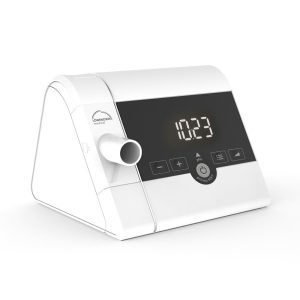 Prisma SmartPlus Auto CPAP Machine£589.00
Prisma SmartPlus Auto CPAP Machine£589.00 -
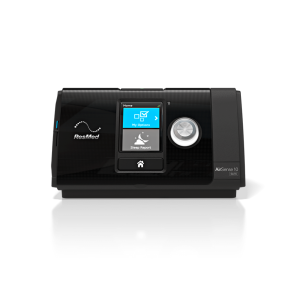 AirSense 10 AutoSet CPAP Machine£599.00 – £699.00
AirSense 10 AutoSet CPAP Machine£599.00 – £699.00 -
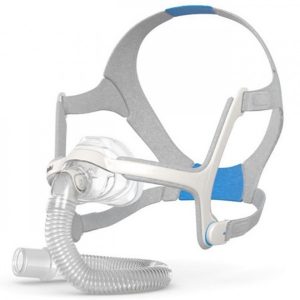 AirFit N20 Nasal CPAP Mask£99.00
AirFit N20 Nasal CPAP Mask£99.00 -
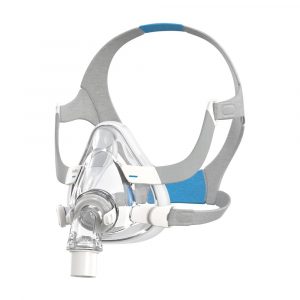 AirFit F20 Full Face CPAP Mask£119.00
AirFit F20 Full Face CPAP Mask£119.00

